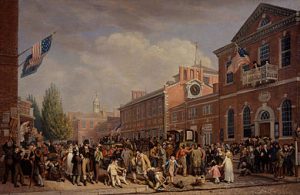Dona Nobis Pacem
I heard a great anecdote while I was studying at the music conservatory: during the Cuban Missile Crisis, a bass player was sharing an elevator at the conservatory with a woman who was completely out of sorts over the impending doom of nuclear war. “What if they bomb us today? What will we do? What will happen to our world?” She went on and on, working herself into a frenzy of hysteria and anxiety. Finally, the bass player looked over at her and said, “Lady, I have to practice,” left the elevator and walked to his practice room.
Some of us are born to be social activists. Some, like me, are not. The last few weeks in the US have become pretty intense. I despise all this ugliness. Everybody is guilty of it. I find myself searching for and needing some beauty to neutralize the poison. I don’t know this cellist, but I know he’s like me. From his facebook post:
“With all the recent stuff that has happened in society, it has really taken a toll on me mentally/emotionally. My heart is hurting and there’s nothing I can really say. So since music is the thing I know best I figured I’d just play. Here’s a bit of Adagio for Strings by Samuel Barber. “
Barber’s incredibly famous Adagio for Strings has kept his name among the top 20th century American composers. It is originally a movement from his String Quartet; upon hearing it for the first time, he immediately knew he had written a real winner. He arranged it for many different ensembles, but it is best known as a work for string orchestra or chorus (using the text “Agnus Dei“). It was played at the funerals of JFK, FDR, Albert Einstein, and many more, and is used in numerous video games, TV shows, and movies (most memorably, Platoon).


Recent Comments